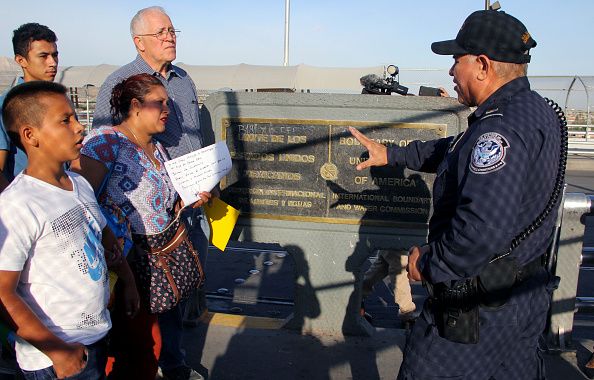
The Trump administration's policy of separating migrant children from their parents has caused an uproar in recent weeks and called attention to the lengths people are willing to go to enter the United States.
The Center for American Progress estimates that there are approximately 13.1 million foreign-born people living in lawful permanent residence in the U.S., with around 11.1 million unauthorized migrants in the country. Almost 2 million others have temporary visas.
But despite being the country that, estimates say, hosts the most migrants worldwide, the U.S. is hardly the best place for immigrants, according to surveys. In 2017, U.S. News & World Report compiled a list of the best countries to be an immigrant, based on policy, global perception and economic data. According to the list, the U.S. ranked No. 7 despite hosting the largest number of migrants of any country worldwide. The United Kingdom, Japan, Canada, Germany, Australia and Sweden all ranked higher than the U.S.
Analysts note that it's become especially hard to enter the United States under President Donald Trump, who has made it more difficult to immigrate there legally and has declared a zero tolerance policy against illegal immigration. The policy of separating parents and children at the border between the U.S. and Mexico, which many have denounced as inhumane, is meant to deter families from trying to enter the U.S. without legal permission, according to the administration.
Germany, and Merkel in particular, embody everything Trump dislikes: successful outward facing trade policy, pro-EU, multilateralism, rules-based, liberal & humane migration policy, tough on Russia, abhors nationalism. Differences that are also at the heart of the Europe debate https://t.co/YBPOwuwLqM
— Alberto Nardelli (@AlbertoNardelli) June 18, 2018
Also, Trump recently criticized German leader Angela Merkel for having taking the opposite approach.
"The people of Germany are turning against their leadership as migration is rocking the already tenuous Berlin coalition. Crime in Germany is way up. Big mistake made all over Europe in allowing millions of people in who have so strongly and violently changed their culture!" Trump tweeted on Monday in response to news that Merkel's party was experiencing internal conflict over policy related to asylum seekers.
Trump has criticized Germany's government for many things, like its stance on trade, but this was the first time he openly weighed in on the country's immigration policy. Many were surprised he would do so when his own administration is being lambasted for its harsh immigration policy.
Meanwhile, even many Republicans argue that the country needs immigrants to make the economy more robust.
"The rise in high-skilled immigration, a pronounced trend since the 1990s, has been linked to innovation, specifically to higher patenting rates among immigrants. Interestingly, greater innovation among immigrants appears to boost it among natives, too," says a 2016 report from the George W. Bush Institute. "Immigrants innovate more than natives because they are concentrated in STEM occupations where there is lots of R&D and entrepreneurial activity." (STEM refers to science, technology, engineering and math careers.)
The report also says that "forty-four percent of medical scientists are foreign born, for example, as are 42 percent of computer software developers. Immigrant workers are also overrepresented among college professors, engineers, mathematicians, nurses, doctors and dentists, to name a few."
Uncommon Knowledge
Newsweek is committed to challenging conventional wisdom and finding connections in the search for common ground.
Newsweek is committed to challenging conventional wisdom and finding connections in the search for common ground.
About the writer
Cristina Maza is an award-winning journalist who has reported from countries such as Cambodia, Kyrgyzstan, India, Lithuania, Serbia, and Turkey. ... Read more
To read how Newsweek uses AI as a newsroom tool, Click here.








